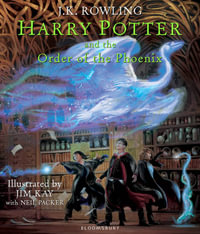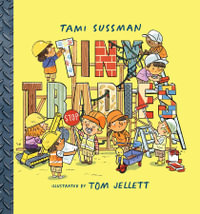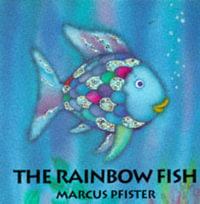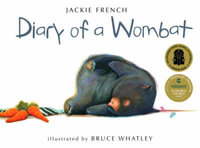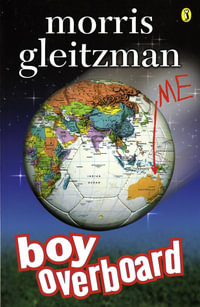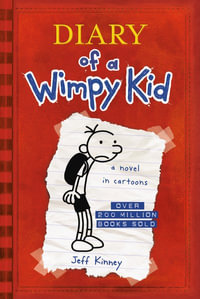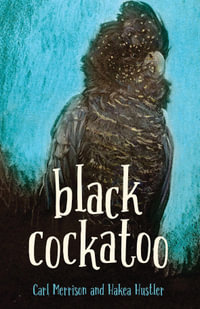https: //www.kirkusreviews.com/features/dark-side-love-bonds/
The Dark Side of Love Bonds
By Leila Roy on March 26, 2015
The sun is rising. The myth is not in the telling, but the constant retelling. This is my story. I want to tell it, not once, not just to myself, but over and over again.
Infandous, Elana K. Arnold
I am finally, finally ready to sit down and read Lolita, and the credit belongs entirely to Elana K. Arnold's Infandous. Like Bone Gap, this is a book so fantastically excellent that I fear it may reduce me to a gushing disaster, that I'll have to resort to just throwing copies at peoples' heads rather than using actual words to describe my love for it. Bone Gap, though, will be an easier sell Infandous is an uncomfortable, often queasy read, which will make it somewhat less accessible.
It's the summer before senior year, and Sephora Golding has a secret. It's a dark secret, one that she wants to be free of while also wanting to bury it so deep that it will never see the light of day. Using fairy tales the profoundly dark, non-Disney-fied ones Greek tragedy, Greek mythology, and, yes, Lolita, Seph slowly spins her story out, slowly works herself up to facing her own personal wolf.
It's about mothers and daughters, about how girls become women. It's about how intensely we can love; about the complexity of those love bonds; about loving a parent with your whole heart while also being ready to become your own person; about wanting to be comforted by a person while also wanting to protect her. It deals with economic class and gender roles so, yes, along with the fairy tales, it's safe to say that Infandous hit ALL of my buttons and Arnold's choices in choosing the fairy tales and myths to highlight are bull's-eyes, all, but in a way that feels organic, not forced. Her visual imagery is lovely (On Apollo and Daphne: Legs cleaved together into something impenetrable, made more nature than woman. There's safety in that.) as are her other sensory descriptions (There's a smell, a sharpness, a rot-life-ocean tang that tells me I am home.), and in this passage, Seph's thoughts about art bring so many of those elements together:
The sculptures are beautiful even though the subject matter is terrible. That book Lolita is like that too. And I wonder about that about taking pleasure from these women's pain. Of course they're not real they're mythological they're pretend, but whatever. It's only because real women were raped and real men raped that any of this makes a connection for people. All around me people look and point and discuss, faces neutral or lit up in delight. Their pain, our pleasure. I wonder does that make us complicit? Guilty by association?
Seph's discomfort with enjoying art that explores hard, painful topics art that makes beauty out of tragedy, out of loss, out of pain that she questions about the morality of that, while also clearly exhibiting a sense of connection with the art, while also gaining some amount of comfort from it...that's just one example of how PACKED this book is, how rich and thoughtful and yes, profound. Her thoughts about art, too, can be extrapolated out to questions about separating the art from the artist, about how (or if) we can appreciate art made by artists whose beliefs or opinions or actions are antithetical to our own all of this will strongly resonate with those readers who're still working through their own thoughts and feelings and questions about the ongoing conversations about gender and sexism and diversity and privilege and power in the YA world.
It's a story that so easily could have been about revenge or the continuation of pain, but ultimately it's about strength, healing, love, and empathy. Two completely different, absolutely stellar 2015 titles in a row! I want to go for three any recommendations?
-- "Blog"
Raw and dreamy, tragic and brilliant, Infandous is both about a girl trapped within her own dark fairytale and the cruel fairytale that all girls are trapped inside. There's no looking away as Arnold's astute heroine journeys through the thorny myth and riddle of her sexuality. How can she own what she's given up or lost? How can she not feel taken? --Stephanie Kuehn, Morris Award-winning author of Charm & Strange
-- "Other Print"
Sephora Golding is starting to feel like she's living in one of the old-style fairy tales, the pre-Disney kind that contain some shocking elements. She and her beautiful single mother have always been two against the world in their grubby Venice Beach apartment, but lately Sephora is thinking more and more about what makes her different from the mother she idolizes. As she processes losing her virginity to a handsome older stranger she met on the beach, her mother begins dating the surfer guy who lives downstairs who is closer to Sephora's age than her mom's. Retellings of traditional tales, including those of Sleeping Beauty, Demeter and Persephone, and the rapes of Philomela and Lucretia, contextualize and foreshadow Sephora's contemporary story, creating a novel that is as artful as it is emotionally disconcerting. Sephora's adoration of her mother is nearly erotic in its presentation, as she focuses obsessively on the beauty of her mother's body and how she misses the physical closeness they shared when she was younger. More intense, though, is her realization that the stranger she willingly slept with turned her life story into the worst kind of incestuous fairy tale; oddly, it is this very realization that frees her from her obsession with her mother into her own sense of self. Though Arnold's prose lacks the same ethereal glaze, fans of Francesca Lia Block will find themselves very much at home here in terms of setting, theme, and ethos.--The Bulletin of the Center for Children's Books
-- "Journal"
Sephora Golding is the daughter of a beauty, and this mother-daughter relationship has informed most of her life. Throughout Sephora's childhood in Venice Beach, it's been just the two of them, and as she struggles now with the growing pains of new adulthood, a steadily shrinking future, and with a strange dark sexual secret, it is to that relationship that she continues to turn. It's the secret, though, that influences her artwork, an ongoing project she calls Infandous: something so horrible it cannot be expressed aloud. Inspired by various fairy tales, Sephora crafts circles around what is hidden, always shying away from acknowledging the thing itself. Clocking in at just 200 pages, this is a story that packs no less of a punch for its brevity. Sephora's grim reimaginings of fairy tales are the anti-Disney in the extreme (making this best suited for more mature readers). The strands are worked so surely into the narrative that they feel powerful instead of tired. Sephora herself is a narrator who defies convention, and her story, harsh and spare, is unforgettable. --starred, Booklist
-- "Journal"
Sephora Golding, a 17-year-old found-object artist, used to imagine that her gorgeous mother's life was a fairy tale, but their home on the seedier side of Venice Beach belies those fantasies, and the secret that Sephora is holding inside is the stuff of tragedy. Making haunting use of interspersed myths and fairy tales rife with brutal depictions of cannibalism, mutilation, and rape, Arnold (Sacred) crafts a simmering mystery about Sephora's secret shame, her personal infandous--the 'unspeakable shit' she carries with her. Sephora's revelation is truly startling, though given the preternaturally close relationship Sephora and her mother share, it's hard to imagine that Sephora keeps the bombshell under wraps without setting off her mother's intuition. (Similarly, none of her friends bother with so much as a probing question while she crafts more twisted pieces of sculpture.) Nevertheless, Sephora's painful journey and its lack of easy answers will stick with readers, as will its razor-sharp commentaries on sexual and societal double standards.--Publishers Weekly
-- "Journal"
Sixteen-year-old Sephora Golding is the daughter of the incomparable former model Rebecca Golding. Seph lives a less-than-admirable life on the shadier side of Venice Beach, California. Her artwork keeps her grounded, but her meager lifestyle can't compare to the lap of luxury that she could have living with her mother's family across the country. Even with all of the negative aspects, the truly special connection that she has with her mother, one that stretches far beyond the typical mother-daughter relationship, keeps her tied to the place and the life that she has always known. Interspersed with Seph's coming-of-age narrative are snippets of a fantastical fairy tale about a mermaid and a wolf that bear a striking resemblance to the teen's own family drama. The strength of this story lies in the legitimate connections made between modern times and classic myths/fairy tales. Arnold's fresh and exciting plot twist is unexpected, elevated by the lyrical writing style. The story is full of mature content, including language and thinly veiled sexual references. A well-written and evenly paced dramatic tale about finding peace in ones own situation. --School Library Journal
-- "Journal"
The summer before senior year gives Sephora Golding time to surf, work on her found-object works of art and reflect on the turn her life has taken. Seph shares a low-rent apartment in Venice Beach, California, with her stunningly gorgeous mother, Rebecca, who Seph used to imagine was a mermaid. Left by Seph's father and shunned by Rebecca's family, the two have always been unusually close. Last year, Seph had a brief fling with an older man; now Rebecca's having a summertime romance with a younger one. Seph relates her summer tale of self-discovery in a matter-of-fact, occasionally foulmouthed teen voice. She intersperses her account with hard-hitting yet sumptuous versions of fairy tales and myths, from 'Sleeping Beauty' and 'The Rape of Lucretia' to 'Demeter and Persephone.' From her vantage as narrator and storyteller, she points out that '[t]hings don't really turn out the way they do in fairy tales. I'm telling you that right up front, so you're not disappointed later.' She calls one of her sculptures Infandous, meaning 'something that's too terrible to be spoken aloud. Hers is a world of raw physicality, underscoring the contrasts between beauty and ugliness, wealth and poverty, light and shadows that play out as secrets unfold. A coming-of-age story consciously reminiscent of Lolita, this multifaceted portrayal of family bonds surprises with its nuanced and sometimes-searing emotional gravity. --starred, Kirkus Reviews
-- "Journal"










